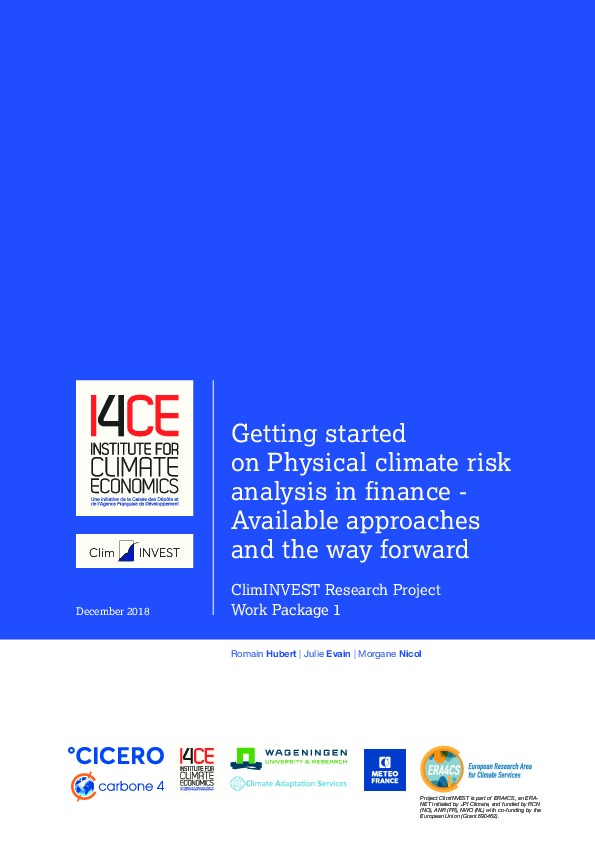Getting started on Physical climate risk analysis in finance
Financial institutions are already exposed to the potential physical impacts of climate change also called “physical climate risks” in finance. These require immediate attention from financial institutions, in order to understand how well prepared are the economic actors that they finance.
Yet financial institutions still lack tailored information to analyze their exposure to these risks, as revealed by the information they publicly disclose. They currently start to explore such analysis based on the methodologies developed by third-party service providers.
What is the state of play of existing approaches to analyze physical climate risks at financial institutions? What do they offer? What are their boundaries? What is the way forward with them?
In the frame of the ClimINVEST European project, I4CE reviews existing approaches developed by eight service providers. The report provides detailed analysis of these approaches in a common framework, and discusses crucial aspects such as the outputs; the perimeter of analysis; the data sources and their granularity; the strategies to analyze impacts; the use of forward-looking analysis.
The review is based on the information that the service providers kindly shared with the authors, and that they accepted to disclose in the Annex 3 of the report.
The ClimINVEST consortium produced this report as a first step to identify information gaps on physical climate risks for financial institutions. The consortium then incorporated key findings of this report into a synthesis report of investor needs for information in France, the Netherlands and Norway.
As a next step, the consortium partners and different groups of financial institutions are now co-designing and co-developing indicators on physical climate risks to start bridging these information gaps.
Please see the ClimINVEST project’s principal website for more information and updates on the project.

